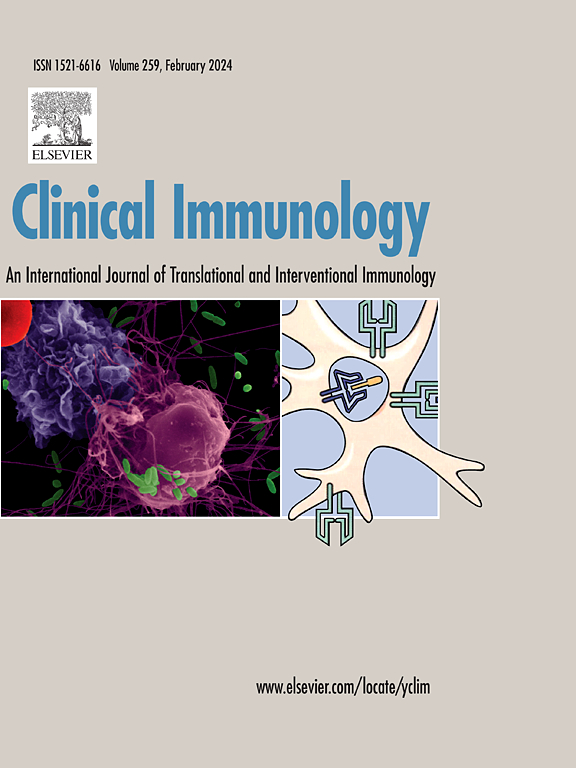Optimizing iNKT-driven immune responses against cancer by modulating CD1d in tumor and antigen presenting cells
IF 4.5
3区 医学
Q2 IMMUNOLOGY
引用次数: 0
Abstract
Two major antigen processing pathways represent protein Ags through major histocompatibility complexes (MHC class I and II) or lipid Ags through CD1 molecules influence the tumor immune response. Invariant Natural Killer T cells (iNKT) manage a significant role in cancer immunotherapy. CD1d, found on antigen-presenting cells (APCs), presents lipid Ags to iNKT cells. In many cancers, the number and function of iNKT cell are compromised, leading to immune evasion. Additionally impaired motility of iNKT cells may contribute to poor tumor prognosis. Emerging evidences suggest that CD1d, itself also influences cancer progression. Patient databases further highlight the importance of CD1d expression in different cancers and its correlation with patient survival outcomes. The ability of iNKT cells to activate and enhance the immune response renders them an attractive target for cancer immunotherapy. This review discusses all the possible ways of cancer immune evasion and restoration of immune responses mediated by CD1d-iNKT interactions.
通过调节肿瘤和抗原提呈细胞中的 CD1d,优化 iNKT 驱动的抗癌免疫反应。
两种主要的抗原处理途径,即通过主要组织相容性复合物(MHC I 类和 II 类)处理蛋白抗原,或通过 CD1 分子处理脂质抗原,对肿瘤免疫反应产生影响。不变自然杀伤 T 细胞(iNKT)在癌症免疫疗法中发挥着重要作用。抗原递呈细胞(APC)上的 CD1d 向 iNKT 细胞递呈脂质抗原。在许多癌症中,iNKT 细胞的数量和功能都会受到损害,从而导致免疫逃避。此外,iNKT 细胞的运动能力受损也可能导致肿瘤预后不良。新的证据表明,CD1d 本身也会影响癌症的进展。患者数据库进一步凸显了 CD1d 在不同癌症中表达的重要性及其与患者生存结果的相关性。iNKT 细胞具有激活和增强免疫反应的能力,使其成为癌症免疫疗法的诱人靶点。本综述讨论了 CD1d-iNKT 相互作用介导的癌症免疫逃避和免疫反应恢复的所有可能途径。
本文章由计算机程序翻译,如有差异,请以英文原文为准。
求助全文
约1分钟内获得全文
求助全文
来源期刊

Clinical immunology
医学-免疫学
CiteScore
12.30
自引率
1.20%
发文量
212
审稿时长
34 days
期刊介绍:
Clinical Immunology publishes original research delving into the molecular and cellular foundations of immunological diseases. Additionally, the journal includes reviews covering timely subjects in basic immunology, along with case reports and letters to the editor.
 求助内容:
求助内容: 应助结果提醒方式:
应助结果提醒方式:


